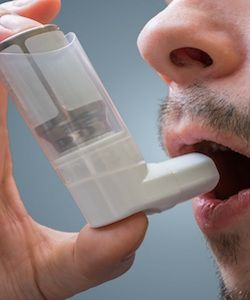Article
FDA Advisory Committee Advises Against Ciprofloxacin DPI
Author(s):
The committee warns against the approval due to inconsistent data, concerns about drug resistance and lack of endpoints met.

The US Food and Drug Administration (FDA) Antimicrobial Drugs Advisory Committee voted against the approval of Bayer Healthcare Pharmaceuticals' ciprofloxacin dry powder for inhalation (DPI) for treatment of severe non-cystic fibrosis bacterial bronchiectasis due to inconsistent data, concerns about drug resistance and the ability to meet only 1 of 4 primary endpoints in 2 studies.
In the meeting, the committee discussed the New Drug Application (NDA) for ciprofloxacin DPI, submitted by Bayer, for the proposed indication of reduction of exacerbations in non-cystic fibrosis bronchiectasis in adult patients with respiratory bacterial pathogens.
Ciprofloxacin DPI comprises ciprofloxacin, a fluoroquinolone antibiotic, formulated into a dry powder for inhalation and is administered with the T-326 Dry Powder inhaler.
The committee noted reservations with the study outcomes, resulting in a 9—6 vote against the ciprofloxacin DPI 14-day regimen and a 14–1 vote against the 28-day regimen. Despite the outcome on the 14-day regimen, the majority did not have a strong opinion, as those who voted yes could have been swayed either way.
Reservations included inconsistent data between the 2 trials, as the 28-day regimen did not meet its primary endpoint in either trial.
Several committee members expressed concerns with the primary endpoint, time to first exacerbation, describing it as a weak endpoint and recommended that the frequency of exacerbations or number of hospitalizations would have been better outcomes.
Aside from the efficacy of ciprofloxacin DPI, committee members cited concerns about its safety, specifically the potential for drug resistance. Data showed that 2- to 4-fold more patients treated, were more likely to have treatment-emergent ciprofloxacin-resistant Pseudomonas aeruginosa, cultured at any point, post baseline and at 2 months after the last dose of medication.
Additionally, the committee was troubled by the study duration, as a presentation by the FDA said that it was unknown whether exposure to the medication beyond a year would lead to increased resistance to fluoroquinolones.
Members suggested a longer study with a way to switch patients from the treatment to placebo and placebo to the active arm, so patients could act as their own controls.
The committee was split on whether the study of both regimens should continue, as some said the data was less impressive, and others pointed out that the 28-day data had promising results when examining frequency of exacerbations.
Related Coverage
FDA Approves Benralizumab for Severe Eosinophilic Asthma




